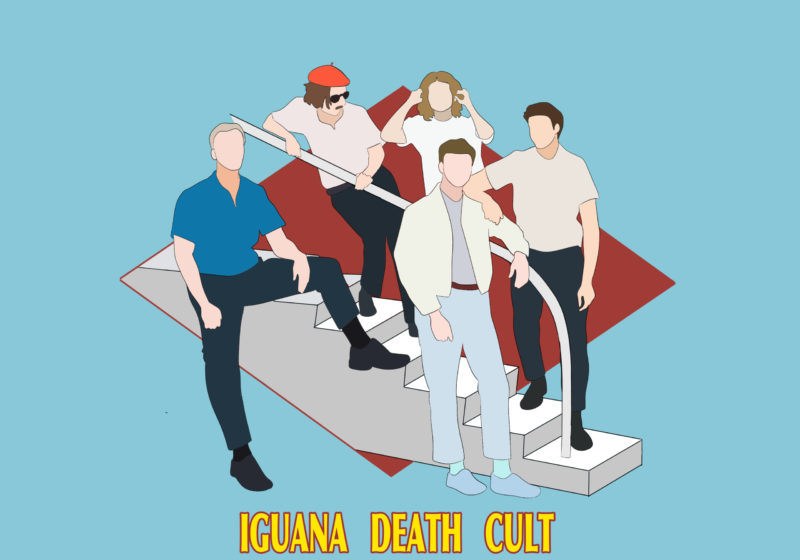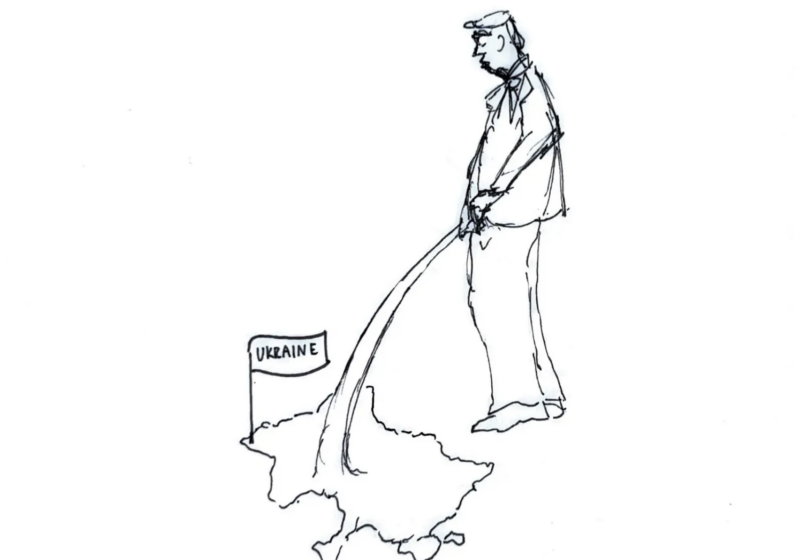Spotify, Apple Music, and, cough cough, Pandora, have been a godsend for genre diversification in the music industry — if you want to hear a type of music, any kind, say, Iranian Disco, you’ll be able to find it on Spotify. The monetary impact of streaming services on artists is more hotly debated; I’ll be ignoring that.
This is an appreciation piece dedicated to one of my favorite bands, a band that might not have had the chance to develop without cloud streaming: Iguana Death Cult (I.C.D.).
Aside from having an oh-so-totally B.A. band name, there is an uncommonly manic energy to I.D.C.’s music that makes them difficult to gloss over in good conscience. Their sophomore effort, “Nude Casino,” is fraught with explosive pentatonic riffs as tortured as its lyrics, which are laced with absurdist, Albert-Camus-esque lines.
The songs are exceedingly fast-paced, noisy, and surprisingly danceable, a danceability underpinned by “Nude Casino’s” emphasis on auxiliary percussion and “funky slappin’ basses.” The twangy guitar layering is deliciously aggressive, and the guitar work would be the main course if it did not yield fittingly to the lead singer’s gruff and bassy shouting — shouting which lacks pitch but is packed with an undeniably infectious bravado that punctuates the band’s party-hearty combativeness.
Genre-wise, “Nude Casino” is many things. I.D.C. is working with a hodgepodge of influences that they cohesively hone into a tribal miasma of psych rock, psychobilly, garage, punk, and even a little bit of disco. I like to compare I.D.C. with legendary psychobilly outfit The Gun Club as well as punk icon Richard Hell.
One of the most firey tracks on the album, “Carnal Beat Machine,” is a disco-laden psych rock banger that peddles the transcendent powers of sex (or maybe an orgy; it’s unclear) as an escape from the doldrums of everyday life. The track epitomizes “Nude Casino’s” trademark sense of existential angst with a whimsical touch. Lyrically, the lead sheds his past attitudes of shame surrounding sex and embraces the primal aspects of his being, hence, “collide into eachother like a carnal beat machine.”
Another highlight is the song “Bright Lights,” a disheveled and painfully self-aware party anthem with confessional lyrics like “double vodkas in the shower…dragging on a cigarette” and “I ain’t got no enemies but I hide behind the curtains anyway.”
You’ll think that I.D.C. has definitely maxed out their metronome until you hear the song “Lorraine.” “Lorraine” comes roaring in fractions of a second after “Bright Lights” ends with what is probably the nastiest — like communal-style-first-year-men’s bathroom nasty — guitar riff I have in my Spotify library. The transition is abrupt and jolting, and may startle the faint of heart.
Despite being a ton of fun, I think “Nude Casino” is, at its core, a lyrical album, an uncommonly lyrical one given its musical panache. It’s the kind of album you first get into looking for something spunky and energetic, maybe for a workout or for car rides, and “Nude Casino” can be that, sure.
If you’re paying attention, though, what you get is a cohesive experience chock-full of heartbreaking disillusionment, philosophically informed angst, and themes of self-destructive behavior as a futile form of escape from ennui. In other words, and I’m beating a dead horse here, “Nude Casino” is a fantastic quarantine album.






